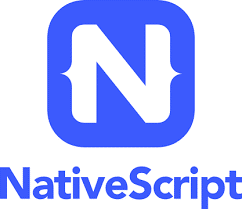Mobile apps are becoming increasingly essential for businesses of all sizes. They can help you improve customer engagement, increase sales, and boost brand awareness. But with so many different mobile app development frameworks out there, it can be tough to know which one is right for you.
That’s why I’m here to help. In this blog post, I’ll discuss the factors you need to consider when choosing a mobile app development framework. I’ll also review some of the most popular frameworks and their strengths and weaknesses.
Factors to consider when choosing a mobile app development framework
There are a few key factors to consider when choosing a mobile app development framework:
- Your budget: Mobile app development can be expensive, so you need to factor in the cost of the framework, as well as the cost of development and maintenance.
- Your timeline: How quickly do you need to get your app to market? Some frameworks are faster to develop with than others.
- Your team’s skills: What skills does your team have? Some frameworks are more complex than others and may require a more experienced team.
- The type of app you’re developing: What features does your app need? Some frameworks are better suited for certain types of apps than others.
- Your target audience: Who are you building your app for? Some frameworks are more popular in certain regions or with certain demographics.
Popular mobile app development frameworks
There are many different mobile app development frameworks available, but some of the most popular include:
React Native: React Native is a cross-platform framework that allows you to build native apps for iOS and Android using JavaScript. It’s one of the most popular frameworks for mobile app development, and it’s known for its speed, performance, and flexibility.


Flutter: Flutter is another cross-platform framework that allows you to build native apps using Dart. It’s known for its beautiful and performant UI, and it’s quickly gaining popularity among developers.
- Xamarin: Xamarin is a cross-platform framework that allows you to build native apps using C#. It’s a good choice for businesses that already have a C# codebase.


Ionic: Ionic is a hybrid framework that allows you to build apps that run on both mobile and web browsers. It’s a good choice for businesses that want to save time and money by developing a single codebase for both platforms.
NativeScript: NativeScript is a hybrid framework that allows you to build native apps using JavaScript. It’s a good choice for businesses that want to use JavaScript for development but also want to take advantage of the native features of iOS and Android

Choosing the right framework for your business
The best mobile app development framework for your business will depend on your specific needs and requirements. However, the frameworks listed above are all good options to consider.
If you’re not sure which framework is right for you, it’s a good idea to consult with a mobile app development company. They can help you assess your needs and recommend the best framework for your project.
Choosing the right mobile app development framework is an important decision. By considering the factors we’ve discussed in this blog post, you can make an informed decision that will help you build a successful mobile app.


